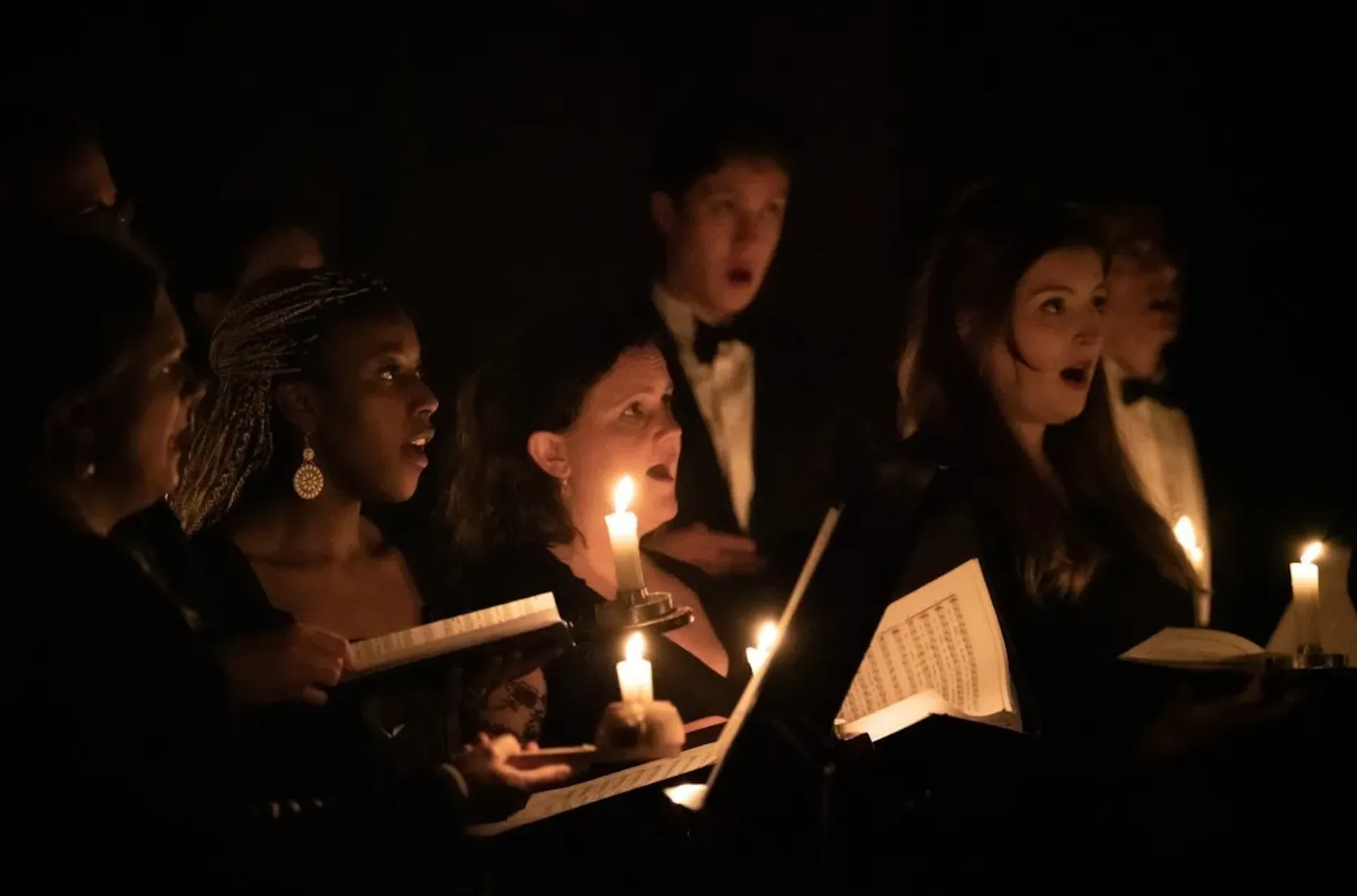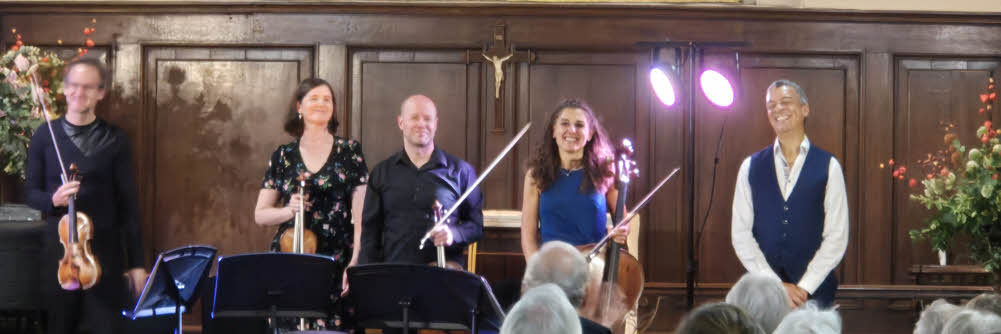Christmas is so much better enjoyed in the anticipation than the reality, I’ve always thought, and that feeling was especially true last Thursday (4 December 2025). Because this year’s visit of the heavenly choir that is Ex Cathedra served as a multi-sensory, immersive experience of Christmas somehow unwrapping itself in glorious slow motion amid the flickering of candles and the steady light of spiritual and choral perfection. In two, clock-stopping hours, here was a generous helping of medieval, contemporary and classic carolling and unexpected poetry that could dose me up with enough pure festive spirit, not to say wonder and joy, to survive the next weeks of commercialist frenzy, shrinkflated tubs of chocolate, and collective delirium with (sleigh) bells on.
This was Christmas ethereally unplugged – just unaccompanied voices by candle light. I say ‘just’: it was in fact a magisterial display of complex harmony, rhythm and technique from start to finish, demonstrating how the hardest thing is to get simplicity right. The programme plucked seasonal favourites in a whistle-stop tour of global Christmases, but perhaps inevitably it was the home-grown carols – Britten, Warlock, Sally Beamish, Liz Dilnot Johnson among others – that afforded me the most pleasure. O Adonai by Roderick Williams (who also starred earlier in the Shropshire Music Trust’s season) was a real highlight. This piece was originally commissioned by the choir’s director Geoffrey Skidmore and is now firmly established as a contemporary classic. Its free-ranging antiphonal textures circled angelically around St Chad’s, soundwave enfolding over soaring soundwave and disappearing into the distant nothingness from which it appeared..
Twenty-one-year-old Christopher Churcher’s spectral Nesciens Mater, too, sounds set to join a canon of Christmas music that annually showcases the polyphonic imperium of the English choral tradition. New music abounded throughout: Ruari Edwards’ Winter’s Hymn set off the second half to spectacular effect.
As handbells softly underpinned the esoteric beauty of Eriks Esenvalds’ The Long Road towards the end of the concert, I was struck by the transient liveness of the experience and how our willingness to nurture “the roots of ritual” (in priest-poet Ayodeji Malcolm Guite’s phrase from one of two marvellous sonnets recited during the concert) entails few ingredients save repeated gatherings, excellent music and a source of light, in these dark times, worth walking towards. All of these are on offer at the SMT’s next concert on January 30th at the same venue featuring internationally renowned pianist Polina Osetinskaya playing Bach and Rachmaninov.
After all, live music is for life, not just for Christmas.
James Fraser-Andrews






